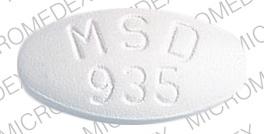Aldoril D50 Interactions
There are 584 drugs known to interact with Aldoril D50 (hydrochlorothiazide / methyldopa), along with 19 disease interactions, and 3 alcohol/food interactions. Of the total drug interactions, 33 are major, 515 are moderate, and 36 are minor.
- View all 584 medications that may interact with Aldoril D50
- View Aldoril D50 alcohol/food interactions (3)
- View Aldoril D50 disease interactions (19)
Most frequently checked interactions
View interaction reports for Aldoril D50 (hydrochlorothiazide / methyldopa) and the medicines listed below.
- Activated Charcoal (charcoal)
- adenosine
- albuterol
- allopurinol
- amiodarone
- aspirin
- Ativan (lorazepam)
- atorvastatin
- atropine
- azithromycin
- Benadryl (diphenhydramine)
- calcium chloride
- Cardizem (diltiazem)
- colchicine
- Crestor (rosuvastatin)
- Decadron (dexamethasone)
- Dextrose (glucose)
- Dilaudid (hydromorphone)
- dopamine
- Eliquis (apixaban)
- epinephrine
- etomidate
- glucagon
- ibuprofen
- insulin
- insulin lispro
- ketorolac
- lidocaine
- Metoprolol Tartrate (metoprolol)
- Tylenol (acetaminophen)
Aldoril D50 alcohol/food interactions
There are 3 alcohol/food interactions with Aldoril D50 (hydrochlorothiazide / methyldopa).
Aldoril D50 disease interactions
There are 19 disease interactions with Aldoril D50 (hydrochlorothiazide / methyldopa) which include:
- liver disease
- anuria
- electrolyte losses
- liver disease
- lupus erythematosus
- renal function disorders
- cerebrovascular disease
- dialysis
- hemolytic anemia
- leukopenia
- peripheral edema
- pheochromocytoma
- asthma
- diabetes
- hyperlipidemia
- hyperparathyroidism
- hyperuricemia
- thyroid function tests
- psychoses
More about Aldoril D50 (hydrochlorothiazide / methyldopa)
- Compare alternatives
- Drug images
- Side effects
- Dosage information
- During pregnancy
- Drug class: antiadrenergic agents (central) with thiazides
Related treatment guides
Drug Interaction Classification
| Highly clinically significant. Avoid combinations; the risk of the interaction outweighs the benefit. | |
| Moderately clinically significant. Usually avoid combinations; use it only under special circumstances. | |
| Minimally clinically significant. Minimize risk; assess risk and consider an alternative drug, take steps to circumvent the interaction risk and/or institute a monitoring plan. | |
| No interaction information available. |
See also:
Further information
Always consult your healthcare provider to ensure the information displayed on this page applies to your personal circumstances.


